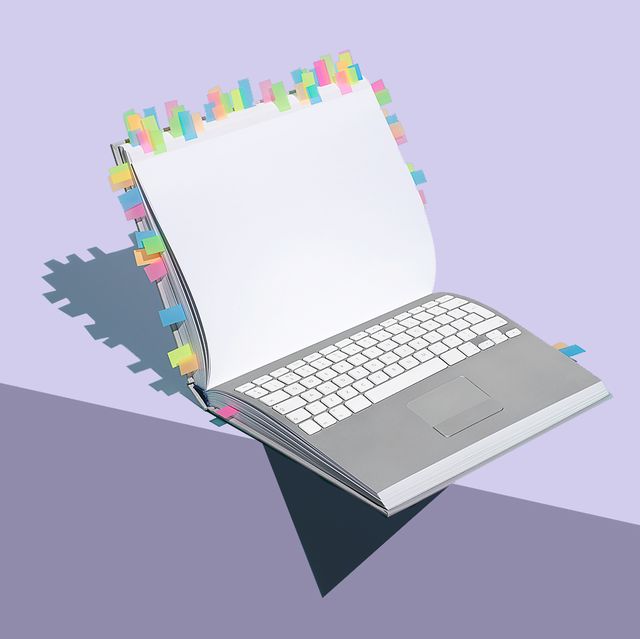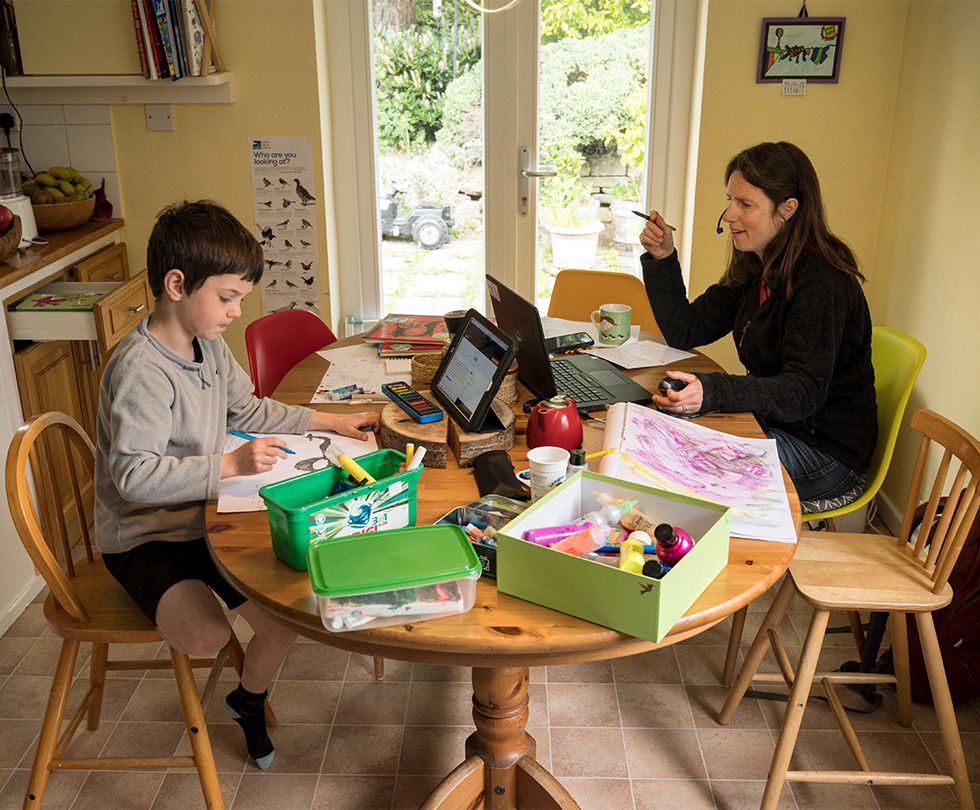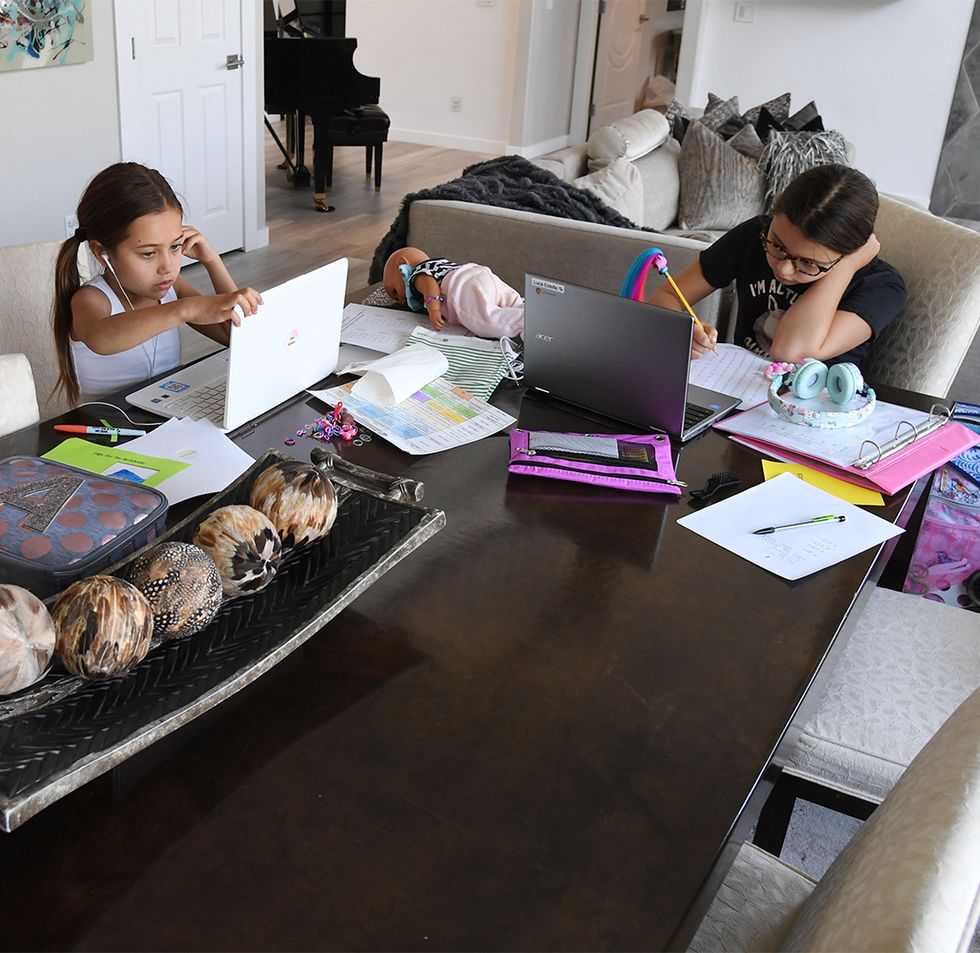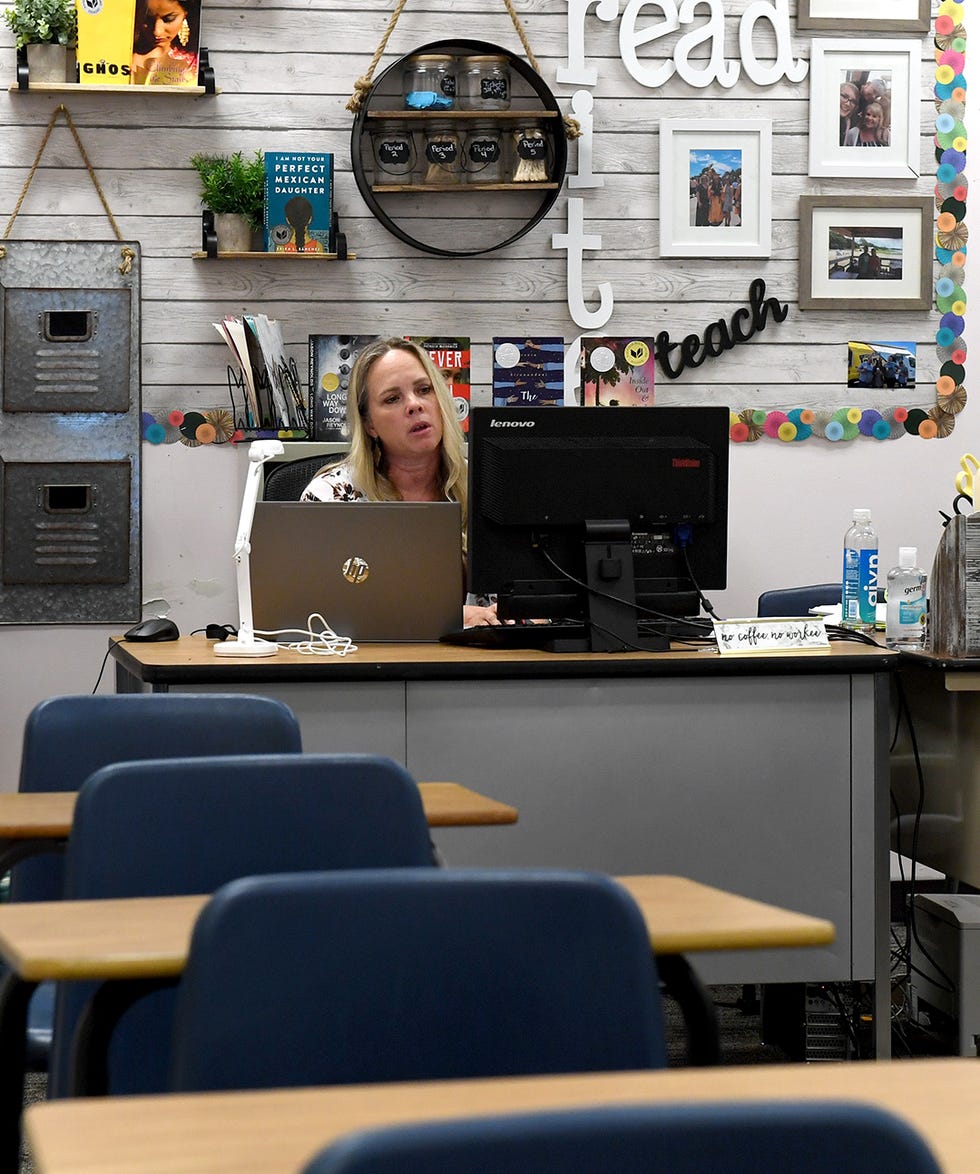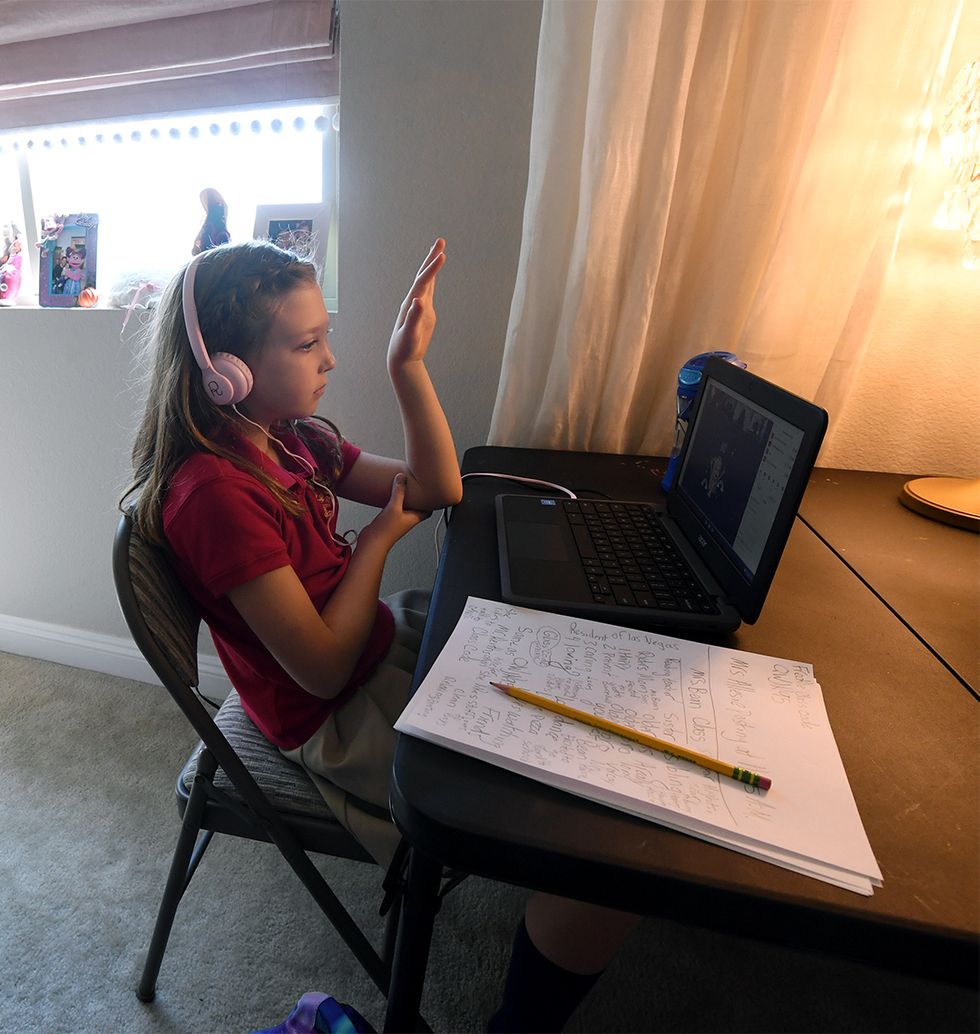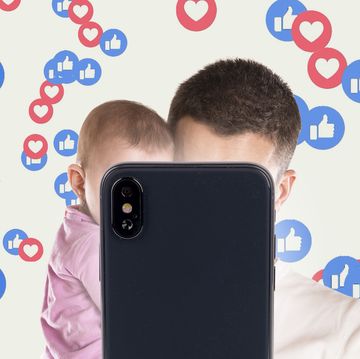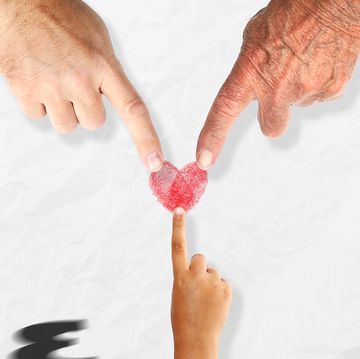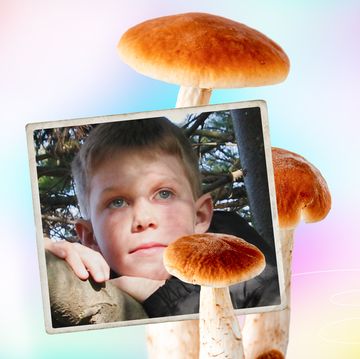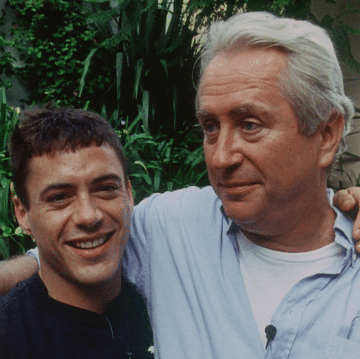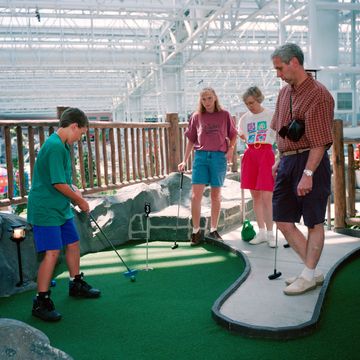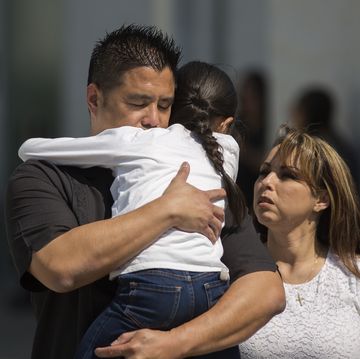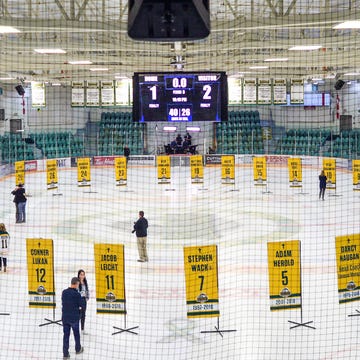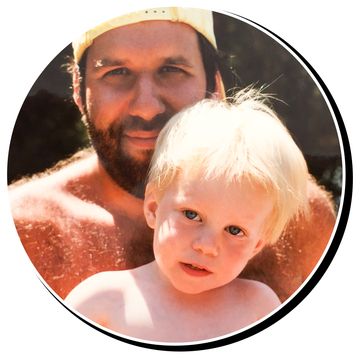"Are you muted?"
The first thing my five-year-old learned in kindergarten, set up at a tiny desk in the corner of our dining room, is to always stay muted. It's probably the wrong thing to teach a child, but not everyone remembers, and then life bleeds in. Zoom school becomes a portal into worlds you never see as a parent making awkward smalltalk at pickup.
You can hear a mom working a job doing collections for medical billing. Call after call.
A dad who calls his sister on speakerphone. They fight most days.
Grandparents asking how long it’s going to take. There are babies wailing.
TVs, so many TVs, an endless buzz of TVs. The weather. The news. Game shows and talk shows.
Are you muted?
Of course Zoom school is a nightmare—with the lack of time to properly plan and the lack of funds to make anything work, how was it going to be anything else?—but every school option right now is. Depending on where you live, school has started as an endless navigation of web logins, unmutes, and dropped connections at home; attempts at confusing part-time hybrid schedules that help only the calendar industry; or the fuck it approach that has already lead to sick kids and teachers, with many more to come.
Every choice has been terrible since the start of the pandemic, when we were told we had to choose life or an economy, a false dichotomy from the start—mass death and sickness are also bad for the economy—but the awful choices we face as parents at the start of school feel especially difficult because we’re all burnt out. The idea of facing all of this for one more day, let alone the seemingly endless months ahead, feels basically impossible. The pandemic balancing act for parents—choose two: your kids, your job, or your health—has always been difficult, but six months in it's in full collapse.
The blame is not with the teachers. They’re trying their best to make the unworkable work. It doesn’t land on the administrators and school boards, despite the half-measures they passed that led here. The blame lies with the president—the incompetents, grifters, and yes-men he surrounds himself with—and his enablers in Congress, who are watching and doing nothing (in fact, they've gone on vacation) as Americans suffer in countless ways.
The lesson we refuse to learn with COVID-19 is that decisions we make today have no bearing on right now, but have a huge effect in a few months. That’s why locking down in March reduced the number of deaths in May. Why opening bars in May brought deaths right back up in July. Why parties on Memorial Day left us with COVID numbers nearly twice as high on Labor Day, and why reopening in-person school in September will likely do exactly what you’d expect come November. The delay between action and reaction means we keep half assing our way through a pandemic that kicks our asses in return.
Making school work in September required vision, action, funding, and resolve on the part of people far above your teacher or school board member in the spring when everything shut down. None of it came. The entire point of the shutdowns was to buy time, to make plans, to lay a foundation for a return that would work. All that time got flushed away by a president more obsessed with hyping miracle cures than doing the hard, thankless work of grinding out a workable plan with scientists and educators and then funding it at a level that could make it actually feasible. That’s what happened in pretty much every other country on the planet. None of them are foolproof, but they've done better than just the state of Florida alone, which had more than 10,000 kids under 18 test positive since their aggressive push for schools to reopen last month.
And so we go it alone, with makeshift workspaces, a rearranged room, a tiny desk in a corner, a stool at the kitchen counter, a place on the couch, your brother on one side, sister on the other, all trying to hear through the din of each other’s zoom rooms.
Are you muted?
When you’re a parent and the unthinkable happens—lose your job, partner gets sick, grandparent dies—someone reminds you that kids are resilient, adaptable. It’s true, mostly. For many kids, this terrible version of school will quickly become normal. My five-year-old now mutes and unmutes like the salesperson of the month on a conference call, and yours probably will, too. But parents? We’re not so resilient anymore.
It’s been six months since everything shut down: schools, offices, restaurants, etc. Six months of uncertainty, economic collapse, and death. So much death. It's a long time to wait when nothing has fundamentally changed in how we deal with the virus.
When it was a few weeks, you made it work. When it became a few months you, well, adapted, sort of. But now? Now things get weird. Six months in, with an unknowable amount of time ahead, my wife and I fantasize about simply spending a weekend in silence. Pacing around our four-room home, I’m jealous not just of the rich with their second homes and “learning pods,” but literally anyone with an extra room, a place for their kids that is separate from everything else. I look at Instagram pics of kids beaming inside a wholly separate home office and I wonder how I can achieve this grandeur. Of course that jealousy isn’t fair, but what is now?
I spent the first week of Zoom school despondent, feeling like my life had ground to a halt. All I did was sit next to a five-year-old to ensure he stopped pulling his shirt up, didn’t hit the beckoning “leave meeting” button, and always stayed on mute. By the time it was over I was wrecked for the day. But also I know he’s lucky to have a parent next to him (let alone two), a solid internet connection, and food and snacks when he needs them. There are so many kids that lack these essentials, and all of this is more terrible for them. The divide falling largely along race and class lines already exacerbated by the pandemic makes this all the more crushing. None of this is fair, but it has been fairer for some than for others. To forget that is to forget our humanity.
There's a lot of humanity visible through the zoom windows. Every day we log on—teachers, children, parents—and, invited or not, we enter tiny portals into each other’s lives. In our home, it's a child, head in hands, struggling to listen through the noise, whispering "I'm tired of this," water bottle at his side as instructed, a dog running past to bark at a delivery person, and two parents just off camera barely hanging on, desperately asking if he's muted.
Elsewhere, the gym teacher lays on her kitchen floor, talking kids through a leg lift.
An art teacher sits in her front seat, a baby in the back, parked to teach the lesson, clearly coming from something unexpected.
The kindergarten teacher opens every morning asking children if they had breakfast, knowing not every answer will be yes. Gently, he asks one girl “are there any grown-ups around that can help you?” She shakes her head no, unable to speak because she can’t find the unmute.
Dan Sinker is a journalist, culture critic, and talks about politics on the "Says Who" podcast.
